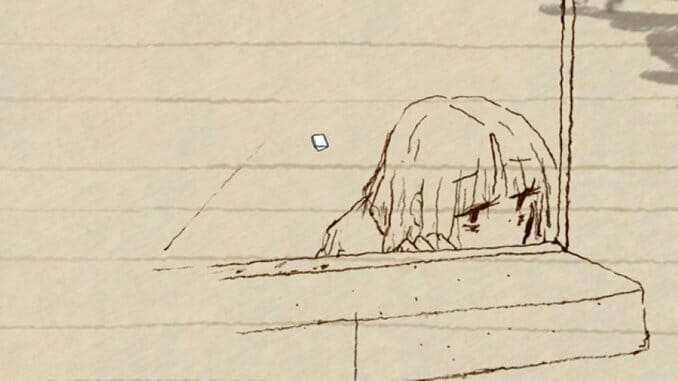If Found Finds Liberation in the Painful Act of Erasure

I wouldn’t say I’m comfortable with erasure, but I know it intimately. I’ve always joked about my invisibility. I’m a woman, my voice often snuffed out by men in positions of power before it’s allowed to light up a room, much less burn down a house. I’m Latinx, an extremely large and diverse group of people the rest of society struggles to frame and discuss, and often doesn’t, in discussions about race unless they relate to immigration. I’m a first-generation Latina-American—never American enough for a significant portion of my country, unable to relate to the history I read in school textbooks, but also entirely unable to find much belonging in the culture I am descended from. I’m bisexual, which has made me have to reconcile with my attraction to men and women as much as the fact my sexuality will always be erased; that, to many, I will never be queer enough. Erasure has always been an uncomfortable, disappointing and painful inevitability.
If Found is the first time in which erasure has been an act of healing for me. Instead of speaking up to correct someone that my relationship concerns with an ex weren’t “lesbian problems,” or feeling like I’m part of a chorus screaming for our voices to be heard and for action to be taken, I have been quietly erasing. I do it with a simple eraser, which I can change the size of throughout the three hours I spend perusing Kasio’s journal. Soon, my weak wrists start hurting from dragging the eraser across the screen to erase words, pictures and memories.
But I don’t change the size of the eraser. Changing it would help with the increasing pain in my wrists, but it would make it too easy to do the job. And it’s not a job. It’s a physical act of care—of reconciling with trauma, pain and loss; of acknowledging their existence but not giving them the power to define Kasio, or me. Although I am not Kasio, I feel for her deeply and relate to her experiences.
Through embodying her, I notice my old habit of trying to desperately hold onto things not meant to stay. I test what I can get away with; sometimes, I can proceed with the cutscenes by erasing most, but not all of a journal entry or page. Sometimes, I get away with leaving a drawing of her old friend, Colum, his boyfriend Jack, or their bandmate Shans. It’s easy to become attached to the friends who take Kasio in after she runs away from a home in which she is restricted from being who she is. To the people who see her for who she is: a trans woman who yearns to reach the stars and galaxies that provide her solace through their immeasurability and unreachability. To those of us who are often erased and relegated to the margins, the people who see us can come to mean everything.
At its core, If Found is about the different ways through which we confront erasure.

 Keep scrolling for more great stories.
Keep scrolling for more great stories.
